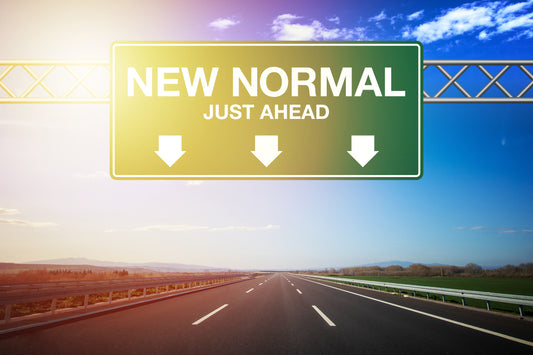Beginning and sticking to a new eating plan is a lifestyle change for many. What does a better normal look like for you? Forget the past. Often people come off a 28-day plan and feel that they deserve to eat multiple foods they usually enjoy as a treat.
That’s fine, it is normal to feel like you deserve something special after 28 days of planning and thinking about your eating. However, all of Donna’s programs are about a better normal. She has even designed a maintenance program to assist you.
Today, we will discuss the psychology of change and hopefully this can help you change your mindset from a 28-day eating plan to embracing a better normal for yourself.
A Psychologist named David Peterson talks about the Development Pipeline, which are the necessary conditions that need to be present for development to occur. I think development is just another word for change.
David talks about the following conditions:
- Insight
- Motivation
- Knowledge & Information
- Risk taking/practice
- Accountability
Let’s look at this from a wellness perspective and consider what parts of your behaviour you may consider changing.
Insight
You need to know that you want to make a change to the way you eat, think and/or exercise. Perhaps you looked at the scales, saw yourself in the mirror, felt sluggish or your doctor advised you. If you don’t know what you want to change, how will you start to make that change in the first place?
Motivation
It’s helpful to be internally rather than externally motivated. That is, the motivation needs to come from within and you have to have a reason to change.
Knowledge and Information
It helps if people have the knowledge and information, they need to effect change. For you, it might be a new exercise plan or an eating plan with recipes.
Risk Taking/Practice
It’s about getting out there and beginning the wellness experience. It can be about trying something new - perhaps a new kind of food or a new type of exercise.
Accountability
Who is holding you accountable for your long-term change? Perhaps you can jump on the scales every week and write it in your online plan. Maybe people at home pull you up. Perhaps you have a list of things you like to tick off. This is a vital part of change whether it’s you or others holding you accountable.
So… let’s put a plan in place for your better normal (or if you are just starting on your program, your beginning).
Insight
- What are my wellness goals during and after the 28 days? Do I know specifically what I want to do/achieve?
- Are my goals realistic? You may want to check these with a health professional?
- How can I break them into incremental chunks – e.g. a kilo a week versus my big 10 kg goal?
- What will keep me informed of my progress? Scales? Feedback? The mirror?
Motivation
- What will start me?
- What will keep my progress going?
- What will deter me?
- How will I stay motivated week by week?
- What will I do if I crave foods that don’t help my wellness?
Knowledge and Skills
- How will I start learning or continue learning and be up to date on things that help me on my wellness journey
- Do I have an eating plan?
- An exercise plan?
Risk Taking / Practice
- What helps me keep momentum?
- What stops me? How do I get going again?
- Is there anything new I would like to try that I haven’t before?
Accountability
- How will I hold myself accountable?
- Who else can help me do this?
What feedback will I need?
You don’t have to consider all these questions. Just focus on what is most relevant for you.
Summary
- Consider embracing a better normal, rather than just a 28-day event.
- Obstacle planning can help you anticipate scenarios where you might slip and know what you might do about it – your IF/THEN planning.
- Developing specific, small, achievable, measurable goals up front to help keep your momentum.
























